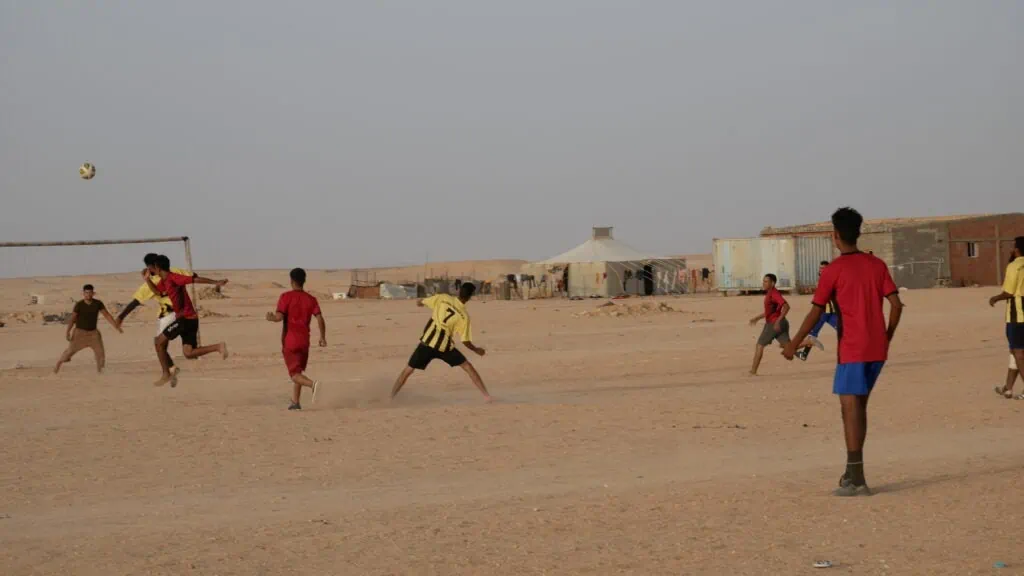Away from the current World Cup and the success of the Moroccan team, complaints have been filed against Morocco in UN human rights cases. Sahrawi students are still imprisoned as political prisoners.
Morocco pulled off a sensation by advancing to the World Cup semifinals. The jubilation was great when the team became the first African team ever to advance this far. This success is to the credit of the young men of the Moroccan national team. Coming from a country where youth unemployment is 27 percent, they have more than fulfilled a dream with a remarkable professional soccer career.
On Wednesday, December 14, the spotlight shone worldwide on the historic Morocco-France World Cup semifinal match. On the same day, with far less attention, a coalition of organizations filed a complaint against Morocco with several special procedures of the UN Human Rights Council.
The lawsuit is about ten Sahrawi students who have been unlawfully detained and tortured in Moroccan prisons. Already in 2019, the Working Group Against Arbitrary Detention concluded that four of the students convicted in 2016 were being held solely because of their political activism and demanded their immediate release.
Students network
One of the students is Aziz El Ouahidi. He was sentenced to ten years in prison in July 2016. Aziz El Ouahidi was 23 years old at the time and belonged to the so-called El-Wali student group. In 2014, Sahrawi students, who are often discriminated against in Morocco and have to fight for their rights, began to organize more. They also established contacts with Moroccan student organizations and, in some cases, worked together to promote their causes. This also brought many young Moroccans into conversation with young Sahrawis for the first time and gave them a different narrative of the violent occupation of Western Sahara than Moroccan propaganda continues to spread today. In addition, the various local Sahrawi student organizations began to network.
Forced confession as evidence
In December 2015, a Sahrawi student was critically injured in Marrakech. The attack with knives and swords, allegedly by Moroccan students, was not investigated by the police. This led to a protest attended by students from all over Morocco. After the demonstration ended, a Moroccan student was killed. This event was used as an opportunity to arrest numerous leaders of the Sahrawi student movement in the months that followed. Among them was Aziz El Ouahidi. He went to the police station himself after police stormed his family's home, mistreated family members, and threatened to arrest his younger brother if Aziz El Ouahidi did not turn himself in. He did not know what he was accused of at the time.
Aziz El Ouahidi was convicted of being involved in the death of the Moroccan student, although there is evidence that he was not even in Marrakech on the said January 24, 2016, when the Moroccan student died. The piece of evidence that led to his conviction: a confession signed under torture. Despite the 2019 assessment by the UN Working Group Against Arbitrary Detention that Aziz El Ouahidi and other members of the student group are unjustly imprisoned, nothing has happened.
Sahrawi students still in detention
Therefore, another complaint was filed this week with the UN Working Group against Arbitrary Detention to the UN Special Rapporteur on the Protection of the Right to Freedom of Expression and the UN Special Rapporteur on Torture.
While football fans were rooting for the Moroccan team, Aziz El Ouahidi and other Sahrawi students are imprisoned as political prisoners, 174,000 Sahrawis still live in the Sahrawi refugee camps in the Algerian desert. They fled there in 1975 when Moroccan troops invaded Western Sahara. In the meantime, the third generation of Sahrawi refugees is growing up there under the most precarious conditions.


